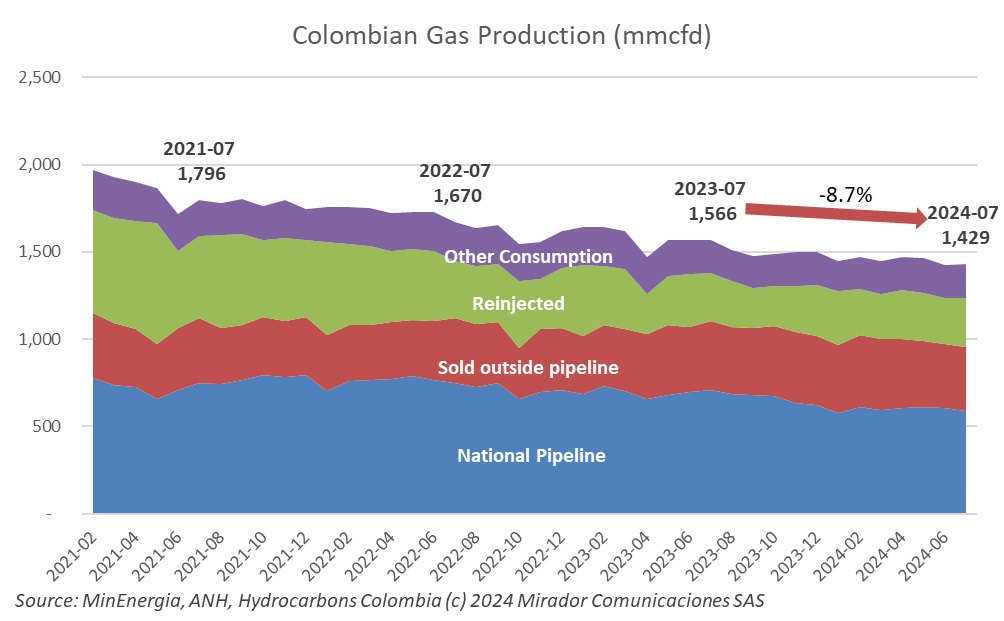
The ANH has updated its website and online databases with field-level data for gas production by type of consumption for July. Measured production rose sequentially. That is the good news. The bad news is that it continues to fall year-on-year and key components like gas delivered to pipelines fell sequentially and annually.
Germany’s new ambassador to Colombia, Martina Klumpp, emphasized the pivotal role of natural gas in Colombia’s energy transition.
Colombia’s Energy and Gas Regulation Commission (CREG) introduced a set of new regulations designed to increase flexibility in the commercialization of natural gas.
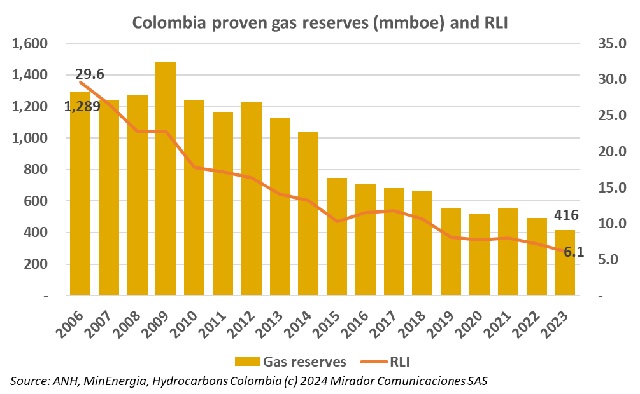
Colombia has lost 45 years of natural gas self-sufficiency due to current uncertainties and government policies, according to Luz Stella Murgas, the president of Naturgas.
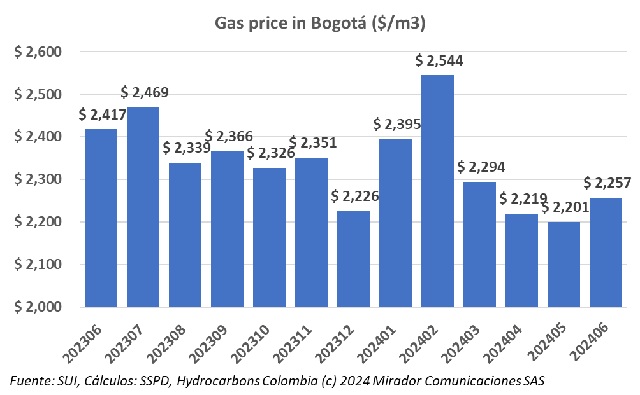
Recent warnings about a potential shortage of natural gas in 2025 and 2026, which could lead to price increases, stand in stark contrast to the current inflation trends for this energy source.
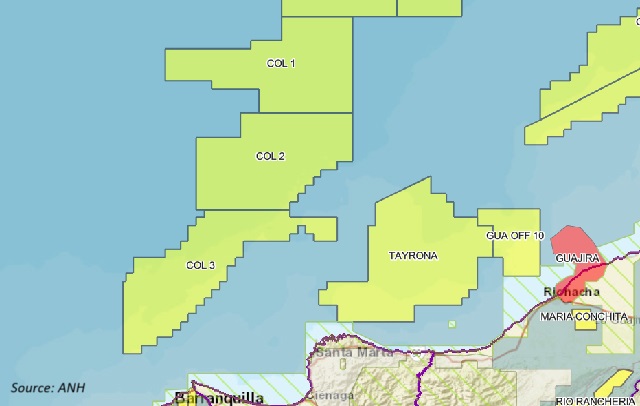
Just as Colombia’s National Environmental Licensing Authority (ANLA) was about to issue a decision on granting an environmental license for one of Ecopetrol’s most significant offshore hydrocarbon exploration projects, a new obstacle emerged from the Ministry of Environment (MinAmbiente).
In response to looming concerns over a potential natural gas deficit in Colombia by 2025, the government is preparing to introduce a new regulatory framework to enhance the availability of natural gas in the market.
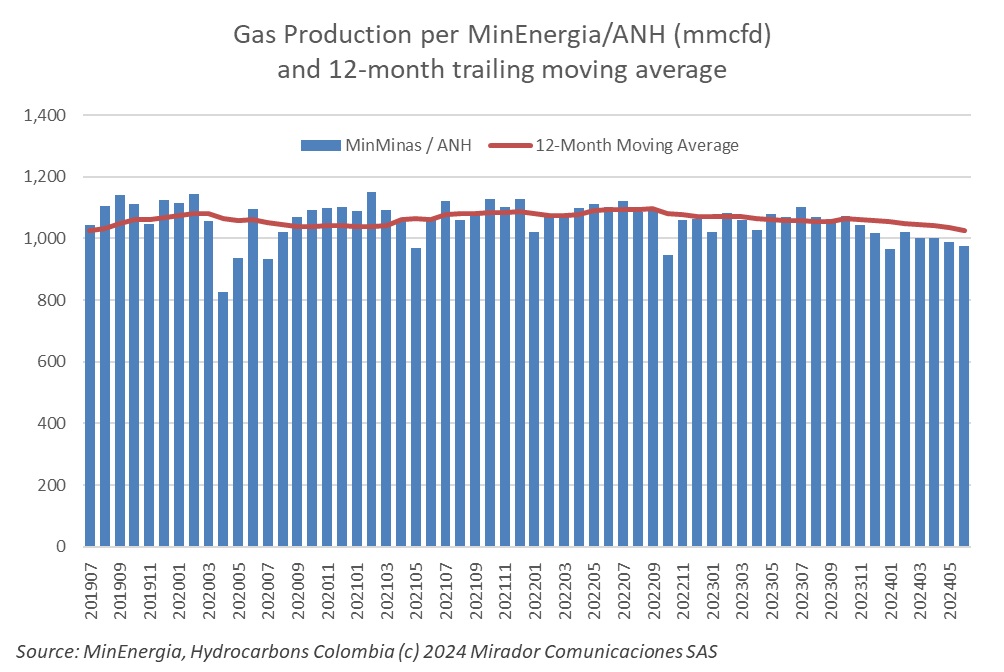
Domestic gas production continues to fall. Apart from a miniscule increase in April, it has declined every month so far this year and June 2024 was 9% lower than June 2023.
In a recent motion of censure debate, Colombia’s Minister of Mines and Energy (MinEnergia), Andrés Camacho, firmly rejected the possibility of importing gas from Venezuela. This stance contrasts sharply with earlier statements made by Ecopetrol’s president, Ricardo Roa, who had hinted at the potential for such imports.
Colombia is bracing for a significant natural gas deficit in the coming years, starting as early as 2025. According to a report from Rystad Energy, local production will not suffice to cover the anticipated shortfall in the short term.